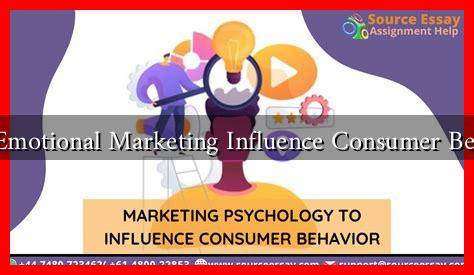-
Table of Contents
Does Emotional Marketing Influence Consumer Behavior?
In the competitive landscape of modern marketing, brands are constantly seeking innovative ways to connect with consumers. One of the most effective strategies that has emerged is emotional marketing. This approach taps into the feelings and emotions of consumers, influencing their purchasing decisions in profound ways. But how exactly does emotional marketing shape consumer behavior? This article delves into the mechanics of emotional marketing, its impact on consumer choices, and real-world examples that illustrate its effectiveness.
Understanding Emotional Marketing
Emotional marketing is a strategy that aims to evoke specific feelings in consumers to drive engagement and loyalty. Unlike traditional marketing, which often focuses on the features and benefits of a product, emotional marketing seeks to create a connection between the brand and the consumer’s emotions. This connection can lead to increased brand loyalty, higher sales, and a more profound impact on consumer behavior.
The Psychology Behind Emotional Marketing
Emotions play a crucial role in decision-making. According to a study published in the journal *Emotion*, emotional responses can significantly influence consumer choices, often more than rational thought. Here are some key psychological principles that underpin emotional marketing:
- Emotional Resonance: Consumers are more likely to remember and respond to messages that resonate with their feelings.
- Social Proof: Emotional marketing often leverages testimonials and stories that evoke empathy, making consumers feel part of a community.
- Fear of Missing Out (FOMO): Brands can create urgency by appealing to consumers’ fears of missing out on experiences or products that evoke strong emotions.
Impact on Consumer Behavior
Emotional marketing can significantly influence consumer behavior in various ways:
- Increased Engagement: Campaigns that evoke emotions tend to generate higher engagement rates. For instance, a study by the *Harvard Business Review* found that emotionally charged ads are more likely to be shared on social media.
- Brand Loyalty: Brands that connect emotionally with consumers often enjoy higher loyalty. A report from *Deloitte* indicated that emotionally connected customers are more than twice as valuable as highly satisfied customers.
- Higher Conversion Rates: Emotional appeals can lead to increased conversion rates. For example, a campaign by Coca-Cola that focused on happiness and sharing resulted in a significant boost in sales.
Real-World Examples of Emotional Marketing
Several brands have successfully harnessed the power of emotional marketing to influence consumer behavior:
- Always – #LikeAGirl: This campaign challenged gender stereotypes and empowered women, resonating deeply with audiences. The emotional impact led to increased brand awareness and loyalty.
- Google – Year in Search: Each year, Google releases a video summarizing the year’s most searched topics, often highlighting emotional stories of resilience and hope. This approach not only showcases the brand’s relevance but also connects with viewers on a personal level.
- Apple – Emotional Storytelling: Apple’s marketing often focuses on the emotional benefits of its products, such as creativity and connection. Their ads frequently feature heartwarming stories that resonate with consumers, reinforcing brand loyalty.
Statistics Supporting Emotional Marketing
Numerous studies highlight the effectiveness of emotional marketing:
- A study by *Nielsen* found that ads with emotional content performed twice as well as those with purely rational content.
- According to *Psychology Today*, 95% of purchasing decisions are made subconsciously, often driven by emotions rather than logic.
- Research from *Gallup* indicates that emotionally engaged customers have a 23% higher share of wallet, spend more on brands, and are more likely to recommend them to others.
Conclusion
Emotional marketing is a powerful tool that significantly influences consumer behavior. By tapping into the emotions of consumers, brands can create lasting connections that drive engagement, loyalty, and ultimately, sales. As the landscape of marketing continues to evolve, understanding the psychological underpinnings of emotional marketing will be crucial for brands looking to thrive in a competitive marketplace. The evidence is clear: when brands connect with consumers on an emotional level, they not only enhance their marketing effectiveness but also foster deeper relationships that can lead to long-term success.
For further reading on emotional marketing and its impact, you can explore resources from Forbes and Harvard Business Review.

